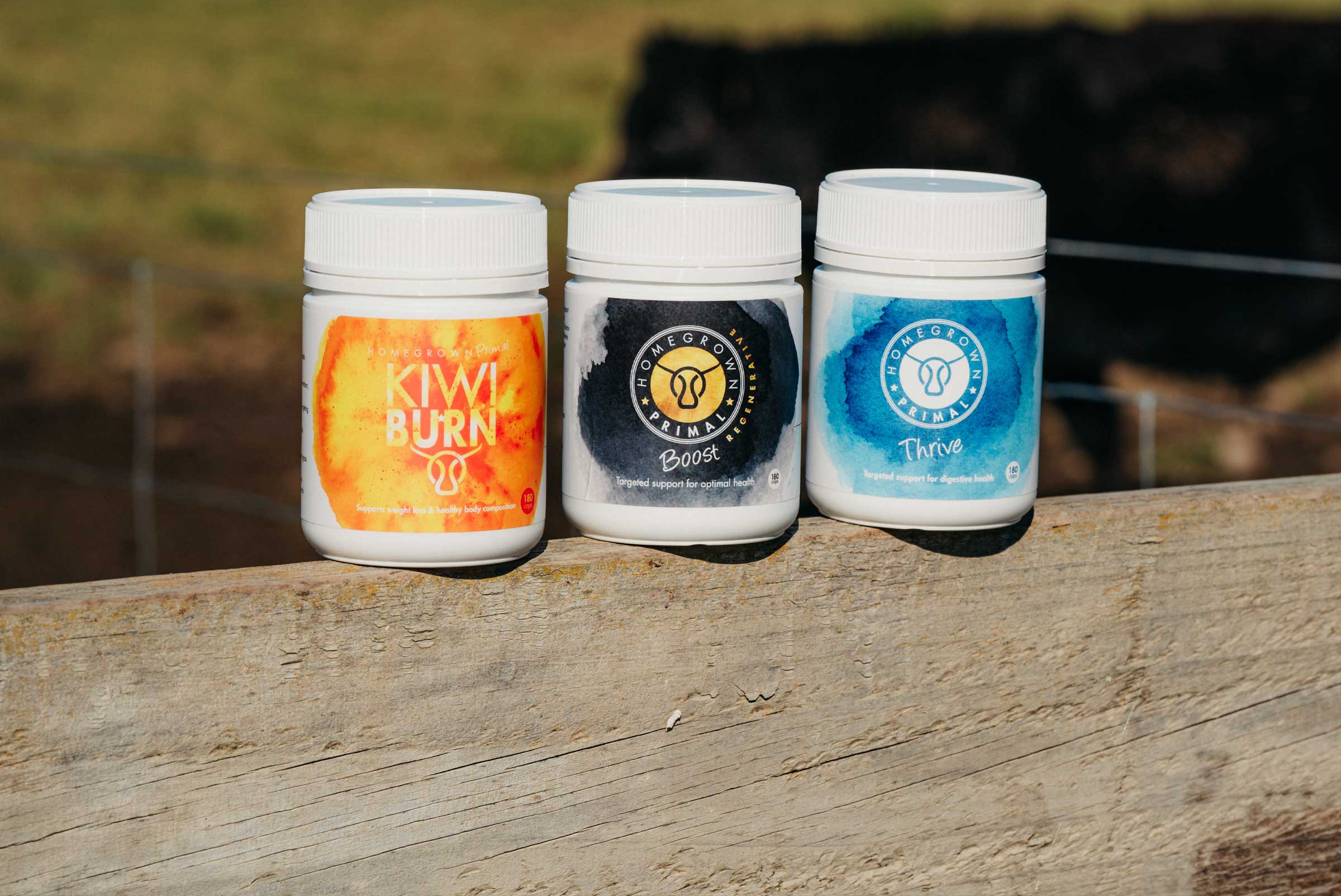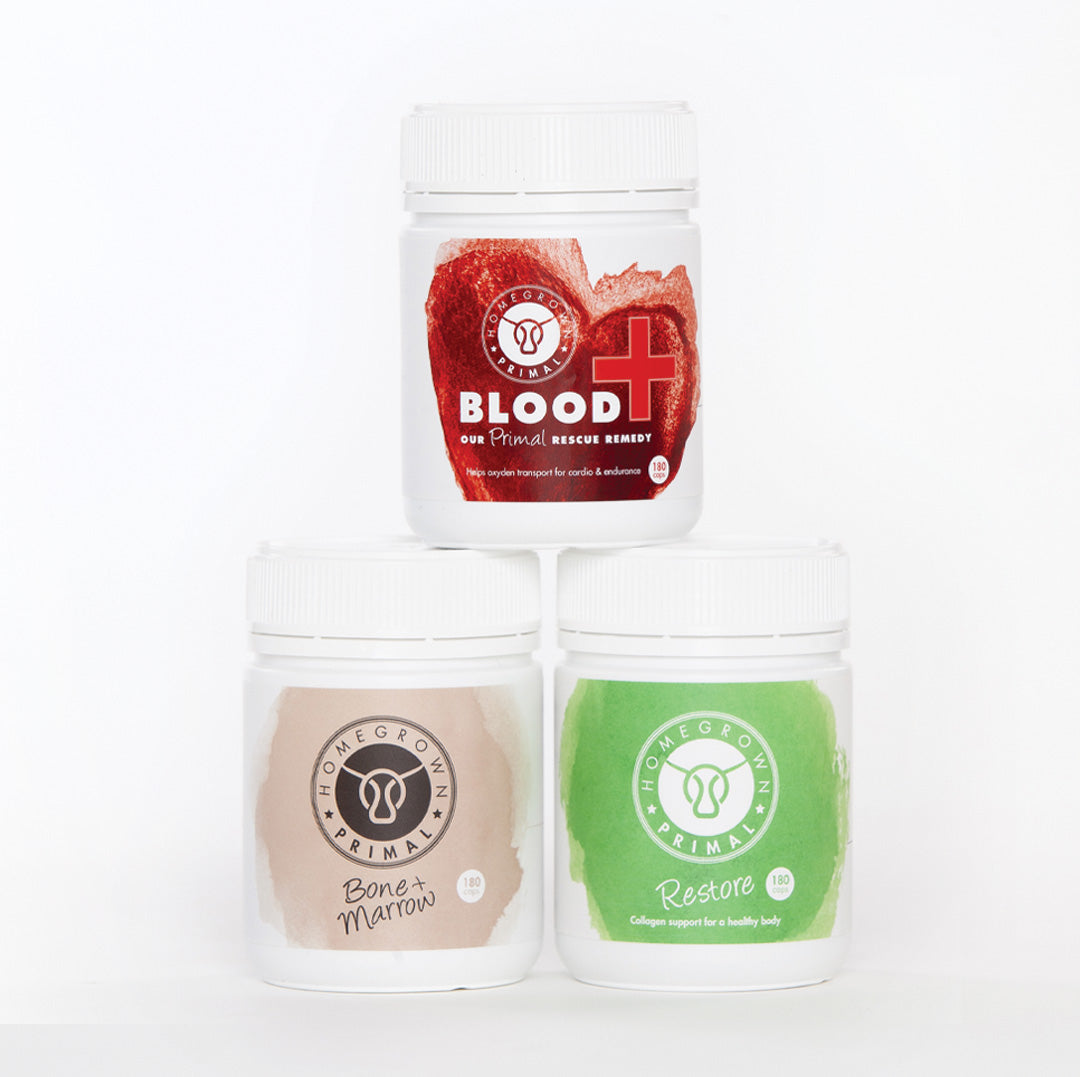Getting adequate protein in your diet is essential for 12 of reasons: and they are all amino acids!!
They all have specific responsibilities in our bodies, from muscle repair to brain health. Getting the right amount daily is necessary as we age as well. Keeping our muscles well fed and dense.
Beef liver is a complete protein, meaning it contains all nine essential amino acids your body can’t produce on its own, plus many non-essential ones. However, the amount of protein you get from HGP daily dose is only 1.95gm, perfect to complement your protein allowance, which should be around 1.5gm/kg of body weight. So if you're 70 kg you should aim for 140 gm of protein.
Eggs: 13gm/egg
Steak: 100gm gives you about 21gm protein
Liver powder: 3gm of powder has about 1.95gm of protein
Keeping an awareness of how much protein you are having is as important is the type of food your protein is sourced from.
Plant sourced protein don’t hit the same nutritional depth as HomegrownPrimal liver or meat and eggs.
Where Do You Get Your Protein?
If you’re after solid protein sources, you can’t go past what nature’s already sorted for you, Here’s some top picks:
- Beef Liver (Freeze-Dried or Fresh): At about 0.6 grams of protein per gram of freeze-dried powder, it’s not just protein-packed but also loaded with vitamins and minerals you won’t find in most other foods. A 5-gram scoop of your powder gives you around 3 grams of protein—small but mighty. Fresh NZ grass-fed liver’s even better if you’re cooking, with 20-23 grams per 100 grams.
- Meat (Beef, Lamb, Chicken): Classic Kiwi staples—grass-fed beef or lamb from your local butcher gives you 25-30 grams of protein per 100 grams cooked. It’s hard to beat for taste and nutrition.
- Fish and Seafood: Being in NZ, we've got options like snapper, salmon, or mussels. Salmon’s got about 25 grams per 100 grams, plus omega-3s for good measure.
- Eggs: Cheap as, versatile, and around 6 grams of protein per egg. Free-range from a local farm’s the way to go.
- Dairy : NZ’s dairy game is strong—think cheese or Greek yoghurt. A 100-gram chunk of cheddar has about 25 grams of protein, and yoghurt’s around 10 grams per cup.
These whole foods are your best bet—real, nutrient-dense. They’ve got amino acids, fats, and micronutrients that work together, not just isolated protein.
Introducing the essentials we can find in all the foods above:
Essential Amino Acids:
Leucine, Isoleucine, Valine (BCAAs): Great for muscle repair and energy.
Lysine: Supports collagen formation and immune health.
Methionine: Key for detoxification and metabolism.
Phenylalanine:** Precursor to neurotransmitters like dopamine.
Threonine: Supports skin and connective tissue health.
Tryptophan: Linked to mood regulation via serotonin production.
Histidine: Important for growth and tissue repair.
Notable Non-Essential Amino Acids:
Arginine: Supports blood flow and detoxification.
Glutamic Acid: Plays a role in brain function and energy.
Taurine: An antioxidant amino acid good for heart and muscle health.
Carnosine (from beta-alanine and histidine): May support muscle endurance and anti-aging.
Bonus Nutrients
Coenzyme Q10 (CoQ10): An antioxidant that supports energy production in cells, especially beneficial for heart and liver health.
Hyaluronic Acid: Trace amounts may support joint and skin health.
So, keep a diary of your protein intake and be aware that animal protein is the best protein to eat.







